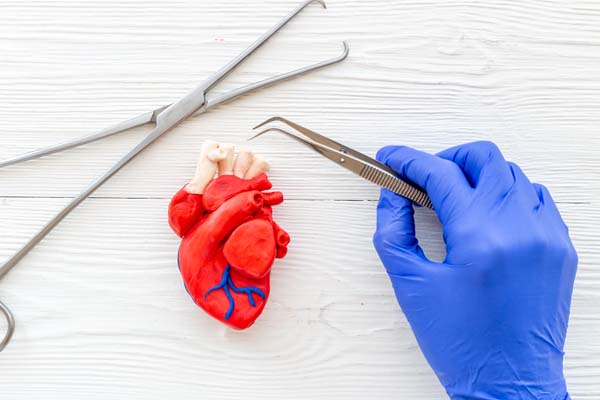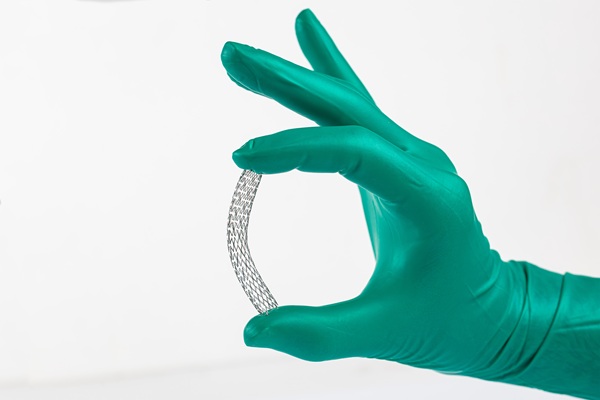9 Reasons You Need a Cardiologist

If you have ever found yourself wondering what a cardiologist does or when to see one, you have come to the right place. A cardiologist is a medical doctor who focuses on issues that affect the heart. Heart disease claims more lives in the U.S. than any other health issue. Those who are at an increased risk of developing heart issues should see one of these specialists regularly.
Nine reasons to see a cardiologist
1. Doctor referral
The first visit most people make to a cardiologist often comes after a doctor refers them. This is usually because the doctor notices a red flag and wants a second opinion from a specialist. A doctor might also refer a patient to a cardiologist because of the person's family history.
2. Patient's family has a history of heart disease
Patients should dig through their family history and look for health problems like heart disease. It has been linked to genetics, so if there is a pattern in a person's family tree, it is best to see a cardiologist before any issues develop.
3. High blood pressure
Patients are advised to get regular blood pressure tests once they hit age 20. When a person notices an upward trend, a visit to the cardiologist is in order. The heart specialist will help manage the patient's blood pressure and bring it down to normal levels. Blood pressure is a major risk factor for both strokes and heart disease.
4. High cholesterol levels
Cholesterol is a strong risk factor for heart disease, and it can be tough to manage. Patients are advised to see a heart specialist if their cholesterol levels are abnormally low.
5. Preeclampsia
Research conducted by the Preeclampsia Foundation indicates that women with a history of preeclampsia — high blood pressure while pregnant or after giving birth — are twice as likely to develop heart disease.
The risk becomes even higher if the patient has it more than once or delivers a premature baby.
6. High heart age
Patients who are not sure if they are at an increased risk of developing heart disease are advised to visit a cardiologist to find out their heart age.
7. Tobacco use
People who smoke or have smoked in the past have increased odds of developing heart disease.
8. Diabetics
People with diabetes are up to four times more likely to develop heart disease than those without it. It is one of the seven main risk factors for heart disease.
9. Early heart issues
People who were born with a congenital heart defect need continuous care throughout their lives. Regular visits to a heart specialist is a must for such people.
When was the last time you saw a cardiologist? Set up an appointment with one of our heart specialists and improve the health of your heart. Having a healthy heart makes it possible for you to live a healthy lifestyle.
Looking for a cardiologist near the 33437 area? Call Florida Premier Cardiology at (561) 229-1411.
Check out what others are saying about our services on Yelp: Read our Yelp reviews.
Recent Posts
Coronary stent placement is a treatment for coronary artery disease, a buildup of plaque (fat and cholesterol) around the heart's arteries. Along with angioplasty, a stent helps restore blood flow to the heart, relieving symptoms such as chest pain and shortness of breath and helping prevent a heart attack. The following overview of coronary stent…
Heart disease treatment encompasses a range of interventions, from lifestyle changes and medications to surgical interventions. Individuals can manage their condition and improve their quality of life by working with a cardiologist. Successful heart disease treatment starts with the patient having the information they need to make informed decisions about their health.Also known as cardiovascular…
A heart specialist is a doctor specializing in diagnosing and treating cardiovascular conditions. Patients may be referred to one of these doctors for several reasons, from diagnosing a heart health issue to getting cleared for surgery. However, seeing a heart specialist is even more crucial for those either experiencing the signs of heart disease or…
Cardiologists perform angioplasty to open blocked arteries, specifically those caused by coronary disease. This minimally invasive alternative to open heart surgery can restore proper blood flow to the heart and often reverse the fast track to a heart attack. However, learning when one is necessary is crucial for treatment success.Coronary artery disease (CAD) is a…


